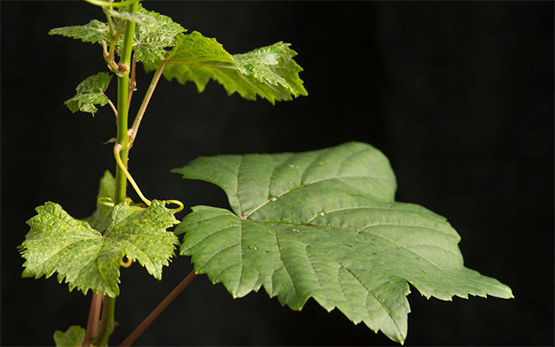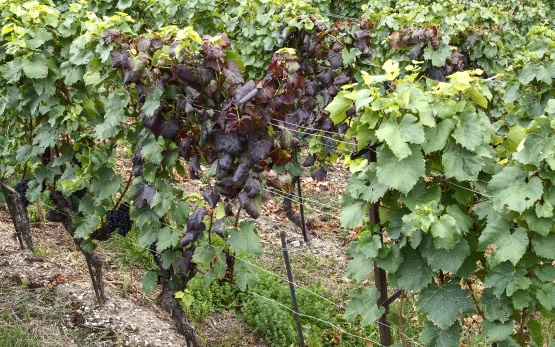Located at the heart of Europe and opening onto several sizeable agricultural production areas, the Swiss farming sector is particularly exposed to virological, phytoplasmological and bacteriological problems, some of them serious. These problems are constantly increasing owing to the globalisation of the plant and seed trade as well as the introduction of new varieties. Moreover, anticipated and already-felt climate changes will doubtless favour the emergence of new diseases and their vectors which until now have spared our region. Switzerland must take part in the efforts undertaken by Europe in the plant-protection sphere. These steps are essential for nurserymen and -women, plant breeders and farmers. They are also essential for decision-making authorities.
Vegetatively propagated species (grapevines, fruit trees, berries, potatoes) are particularly affected because of the high persistence potential of diseases. For numerous accessions, the collections of diseased vines, fruit trees and berries maintained by Agroscope are unique in Europe. They are of key importance because viruses and phytoplasmas cannot be cultivated in artificial media, and symptomatology is strongly influenced by climate. These collections, like the bacteria collection maintained at Changins, are essential references for our work, particularly in terms of the aetiology of the diseases. There is no cure for viral, phytoplasma and bacterial diseases. The only means of controlling them are prevention via health screening (certification of plants and seeds), using virological, phytoplasmological and bacteriological checks (issuing of the ‘plant passport'), and combating the vectors of these diseases.
Consequently, it is essential to adapt diagnostic procedures on a regular basis and to improve our knowledge of viruses, phytoplasmas and bacteria with a view to anticipating emerging problems. It is also crucial to maintain and expand our knowledge of the viral, phytoplasma and bacterial diseases (aetiology and epidemiology) of all crops, as well as our acknowledged and highly valued ability to inform practitioners about possible control methods.
Agricultural production and its support system (necessary checks for obtaining plant passports; certification of Swiss and imported plants and seeds; phytosanitary management of quality-reducing and quarantine diseases) entail a very high, constantly growing volume of analyses which only a recognised specialist laboratory is in a position to conduct. This is the role assigned to the Virology-Phytoplasmology Group, a national centre of excellence in viral, phytoplasma and bacterial diseases. Our centre of excellence is thus involved in ensuring that Swiss plant-production is both efficient and sustainable. The (legal) enforcement tasks dealt with as part of this project and associated in particular with quarantine organisms and certification are based on the Ordinance on the handling of organisms in the environment (RS 814.911), the Ordinance on plant protection (RS 916.20), the Ordinance of the EAER on seeds and plants (RS 916.151.1), the Ordinance of the EAER on fruit plants (RS 916.151.2) and the Ordinance of the EAER on vine plants (RS 916.151.3).







